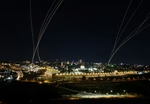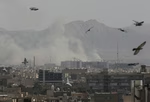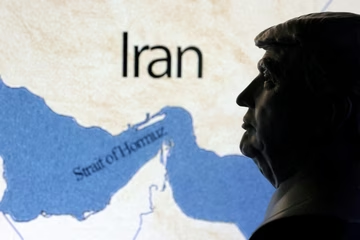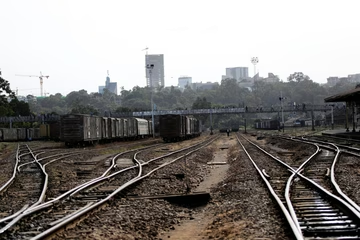
The Prime Minister of the northwestern Una Sana Canton (USK) said on Saturday that the State Security Minister, Dragan Mektic, had told him that authorities are working on preparing the abandoned building of the “Agrokomerc” company for accommodating the migrants that have been occupying towns in the USK.
He also said that Bihac’s mayor, Suhret Fazlic, approved another location in his town for the establishment of a temporary migrant centre.
Thousands of migrants have entered Bosnia on their way toward EU countries since the year began. The country became a significant transit point for them after numerous surrounding countries closed their borders, with Bosnia now being described as a "migrant hotspot" among local officials.
The next stop after Bosnia for the migrants is mostly the country’s western neighbour, Croatia. Croatian border police, however, often turn them away from the border and back into Bosnia.
The northwestern towns of Bihac, Cazin and Velika Kladusa are located in USK and near Croatia’s border and are strongly affected by the situation.
Mayors and municipal assembly members from several towns in this area protested in front of the State Parliament building in Sarajevo against the Government’s handling of the issue end of July.
"Minister Mektic already spoke to international organisations regarding the financing of the renovations. Sedra (a local hotel) works well. There are currently 130 migrants there and there is enough space for this number to increase to 300," Rosic said, adding that the International Organisation for Migration (IOM) has already announced that 60 more migrants will be placed there next Friday.
Rosic also said that he asked the Security Minister to put migrants from Bihac into asylum centres in Delijas and Salakovac and that he was promised some 100 migrants will be placed there within the next few days.
"It is important to point out that according to reports from the USK Interior Ministry, the number of migrants in our canton in not increasing. Although new migrants are coming in, part of them manages to cross the Croatian border, and the number of those coming is decreasing, which is probably the result of a better control over the eastern border," he said.
There are currently also 550 migrants in Trnovo, near Velika Kladusa, while the number of them in Bihac is between 3,300 and 3,600. About a half of them are staying in private accomodation, and those who are renting them out apartments and rooms have begun facing punishments, Rosic said.
"What we are not satisfied with is the mobile team of the Service for Foreigners Affairs, which is granting approvals for asylums instead of sending the migrants who have no approvals or those whose approvals have expired to the asylum centre in Sarajevo," he said, adding that he sent a notice to the Service’s director Slobodan Ujic to check whether there was a legal basis for this and that he is "prepared to pay for busses from the USK budget to transport the migrants without asylum approvals."
"Until the promises that were made to us are realised," he said, "we will continue to pressure the competent bodies."
Kakvo je tvoje mišljenje o ovome?
Učestvuj u diskusiji ili pročitaj komentare





 Srbija
Srbija
 Hrvatska
Hrvatska
 Slovenija
Slovenija



























































